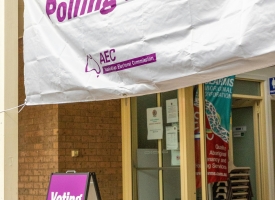Informed Financial Consent - 2015
Informed Financial Consent
2015
1.1. Informed financial consent (IFC) is the dialogue undertaken between a medical practitioner, or his or her representative, and a patient so that the patient understands and consents to the potential:
- fee for a medical service (procedure or treatment) that will be performed by the medical practitioner;
- costs for any implantable prostheses and devices that will be used during the medical service;
- Medicare rebates and private health insurance benefits that apply to the medical service performed by the medical practitioner; and
- variations in fees and costs that might arise if the planned medical service is changed for clinical reasons.
1.2. As part of providing IFC, the medical practitioner may also provide information to the patient about the potential fees of other medical practitioners (such as anaesthetists, assistant surgeons, pathologists and radiologists) who will, or may, also provide services during the procedure or treatment.
1.3. As part of IFC, medical practitioners must also disclose any direct financial interest they have in connection with the location where the service is to be provided, or any other associated services.
1.4. Providing IFC to patients is sound ethical, professional and business practice. It indicates respect for individual patients and their rights, and ensures the patient is aware of any likely out of pocket costs and therefore able to adequately consider any financial implications of the medical service. It also avoids negative perceptions of private medical practice, and makes it more likely that patients are willing and able to settle their accounts following treatment.
2. Responsibilities of medical practitioners
2.1. Every medical practitioner is responsible for ensuring that their patient is aware of his or her fees and for encouraging open discussion with their patients about health care costs. Good IFC practice is essential to meeting this responsibility.
2.2. It is reasonable for medical practitioners to arrange for practice staff to provide IFC on their behalf.
2.3. Medical practitioners work in healthcare teams comprising a regular and established set of colleagues. This means that while patients can choose their treating practitioner, they are not able to choose the other medical practitioners who also provide services during the procedure or treatment. In these situations, the treating practitioner:
- should ask the other medical practitioners to provide him or her with information about their fees, so that it can be provided to patients as part of the IFC of the treating practitioner;
- is responsible for providing the patient with the names and contact details of the other medical practitioners;
- is responsible for providing the patient’s details to the other medical practitioners in a timely fashion.
2.4. Medical practitioners who provide medical services in association with the treating practitioner are responsible for providing IFC to their patients, or providing information about their fees to the treating practitioner.
2.5. In the event that the patient wishes to seek an estimate of fees from another medical practitioner, the treating practitioner should facilitate this where possible by referring the patient for assessment.
2.6. Medical practitioners should provide the patient with the relevant Medicare Benefits Schedule item numbers for each of the proposed procedures or treatments to enable the patient to confirm the applicable Medicare rebate and private health insurance benefit.
3. Responsibilities of patients
3.1. Patients share the responsibility of good IFC practice with medical practitioners.
3.2. Patients are responsible for actively participating in the IFC discussion, and to say when they do not understand any aspect of the information given to them.
3.3. Patients are responsible for contacting other medical practitioners who will be involved in their procedure or treatment to confirm their potential fees.
3.4. Patients are responsible for contacting their private health insurer to confirm their cover and the benefits that the insurer will pay for the medical service.
3.5. Where patients are concerned with their out-of-pocket costs for the medical service, they should discuss their concerns directly with their treating practitioner.
3.6. As part of engaging in IFC, patients may wish to seek estimates of cost from other medical practitioners. Where the second medical practitioner has been approached, he or she must be given the opportunity to assess the patient. In doing so, the second medical practitioner may recommend a different course of treatment, in which case the fees and costs will not be comparable.
4. The practicalities of providing IFC
4.1 Good IFC practice applies to all medical services that:
- attract a Medicare rebate; and/or
- are insured by the patient’s private health insurer; or
- are self-funded by the patient.
4.2. IFC applies whether or not a medical practitioner’s fee is higher than, equal to, or less than the combined Medicare rebate and/or private health insurance benefit payable for the service.
4.3. Ideally, IFC should occur prior to the procedure or treatment being performed so that the patient knows what their out of pocket costs may be.
4.4. IFC should be provided to, and given by, patients in writing. It is also suitable to use communication technologies such as email, SMS and apps.
4.5. IFC for privately insured in-hospital elective procedures or treatments should be common practice.
4.6. For emergency procedures or treatments, it may not be possible to obtain IFC before the service is performed if the patient is unconscious or otherwise incapable of receiving or understanding the information. IFC may not be appropriate if it would delay and therefore compromise the patient’s care.
4.7. One in 38 patients can expect to have an emergency procedure or treatment[1], and where it may not be possible or appropriate to obtain IFC before the medical service is performed.
4.8. In emergency situations where it is not possible to provide IFC before the service is provided, information about fees, costs, rebates and benefits should be provided to the patient as soon as possible after the service is provided. Similarly, where it is not possible to provide information directly to the patient, either before or after the emergency procedure or treatment, it may be appropriate to provide the information to a near relative or a person acting in the patient’s interests.
4.9. For out-of-hospital services such as consultations and diagnostic services the patient’s first contact with the medical practitioner, or his or her representative, will be when making the appointment for the service. This means there may be limited opportunity for IFC to take place prior to the service being provided. However, there are a range of ways that information about fees and costs can be provided to patients, for example:
- verbally when the appointment is made;
- using communication technologies such as emails, SMS or apps;
- by making a schedule of fees and associated Medicare rebates available at the practice, e.g. as a printed handout or in a public notice.
5. IFC is not definitive
5.1. Occasionally, the course of medical treatment can be uncertain. Consequently, it can be difficult for medical practitioners to provide definitive IFC.
5.2. As private health insurers pay different rates of benefits for medical services, out-of-pockets costs will vary from patient to patient. While information about the benefits paid by private health insurers may be relevant to patients’ financial considerations related to their treatment, under no circumstances should medical practitioners recommend that patients change their private health insurer, or take any action to force or pressure a patient to change their private health insurer.
5.3. IFC should always be accompanied by the advice that information about Medicare rebates and private health insurance benefits are based on what normally applies and each patient should confirm his or her entitlements with Medicare and their private health insurer.
5.4. To better position patients to engage in IFC with their medical practitioners, all private health insurers should publish their schedules of medical benefits to complement the publically available information on Medicare rebates.
5.5. The AMA strongly supports the voluntary implementation and continued improvement of IFC policies and practices by medical practitioners. Given the practical impediments to providing IFC in 100 per cent of cases, the AMA is opposed to the introduction of legislation that places a direct legal requirement on medical practitioners to obtain IFC from their patients or include sanctions for non-compliance.
Glossary
Elective procedure or treatment are medical services that are clinically necessary but that can be delayed by at least 24 hours.
Emergency procedure or treatment are medical services that must be provided within 24 hours.
In-hospital refers to medical services that are provided to patients who are admitted to hospital.
Out-of-hospital refers to medical services that are provided: in a hospital setting but the patient is not admitted to hospital; in any other setting; and may be unreferred or referred services.
Out of pocket costs are the amount that the patient pays to a medical practitioner that is the difference between the amounts of the fee charged by a medical practitioner and the Medicare rebate and any private health insurance benefit payable for the medical service.
Procedure is a clinical intervention that is surgical in nature.
Treating practitioner is the medical practitioner who leads the procedure or treatment and arranges for other medical practitioners to provide associated services.
[1] Australian Institute of Health and Welfare Admitted patient care 2013-14: Australian hospital statistics. Calculated from Table 6.23 Emergency admissions involving surgery, by principle source of funds, public and private hospitals, 2013-14 and Table 6.38 Elective admissions involving surgery, by principle source of funds, public and private hospitals, 2013-14, using the principle source of funds: private health insurers; and self-funded.



